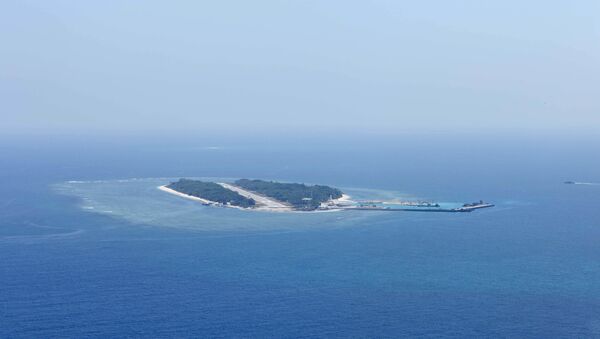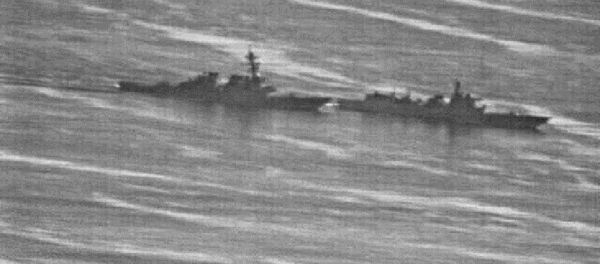Some political scientists call the South China Sea a potential hot spot of the 21 century, comparable in explosiveness to the Middle East.
The intersection of the interests of regional powers, long-standing territorial disputes, active attempts by the United States and other Western countries to play on the contradictions of the dispute's participants, the passage of strategic sea routes through the South China Sea, large hydrocarbon reserves — all this forces us to take seriously any steps to increase a country's military presence in this region.
Indonesia is not a party to territorial disputes in the South China Sea. However, Jakarta has expressed concern about possible claims by China to the Natuna Archipelago. Beijing has called these fears baseless. At the heart of Jakarta's suspicions are lingering concerns about the actions of China in the exclusive economic zone near the Natuna Archipelago.
READ MORE: China Builds New Unidentified Structure in Disputed S China Sea — Think Tank
From time to time, Chinese commercial fishing vessels are detained in these waters. However, in an interview with Sputnik, Chinese expert Shen Shishun from the China Institute of International Studies in Beijing said that he sees no reason for Indonesia to increase its military presence in the area.
The expert argues that Indonesia and China are not parties to disputes in the South China Sea. If Indonesia creates a military base within its sovereign territory, then it is necessary to understand the need for such a step, whether there are motives for creating a military base in this particular area.
"If something threatens national security, then, of course, you need to take action. However, if there is no threat, and you are taking military steps, then this may force other countries in the region to strengthen militarisation in the region. This is clearly inappropriate", he stressed.
"Of course, in disputed territory, Indonesia can take any action. However, from an external observer, you need to look at their necessity, whether they contribute to regional peace and stability, whether they contribute to peace and stability in the South China Sea and whether Indonesia plays a constructive role here", the expert told.
READ MORE: WATCH: Two US Carriers Drill in Philippine Sea Amid Rising China Tensions
Assessing the Indonesian actions, Shen Shishun believes that they were unnecessary:
"This is the starting point for evaluating the decisions made. I don't think these steps were necessary. No one is threatening Indonesia in the entire waters of the South China Sea. Military actions in such a situation do not contribute to peace and stability in the area".
When stating that the countries of the South China Sea Basin are responsible for maintaining peace and stability in the region, the Chinese expert described the current overall situation as developing toward peace, stability, and cooperation, noting that this trend is increasing:
"If we are interested in this correct trend, then appropriate joint measures should be taken. If the situation develops in a proper direction, then no one will take actions that make the region less stable. If a stormy situation arises in the region and the external threat increases, then littoral countries may take their own preventive measures, although no necessity has arisen in that respect. This year, the status quo was maintained, and a stable and peaceful environment in the region was preserved. I believe that countries located in the South China Sea are obliged to jointly maintain regional stability", the expert concluded.
READ MORE: Russia, China Team Up to Modify Atmosphere, Possibly for Military Use — Report
Following the results of the ASEAN-China summit held in Singapore on 14 November 2018, the intention of the parties was announced to conclude a South China Sea Code of Conduct (COC) within three years. The COC, which the Association of Southeast Asian Nations (ASEAN) and the People's Republic of China have been jointly developing since 2012, is intended to prevent conflicts due to territorial disputes over islands and marine resources in the region.
Views and opinions, expressed in the article are those of Shen Shishun and do not necessarily reflect those of Sputnik






